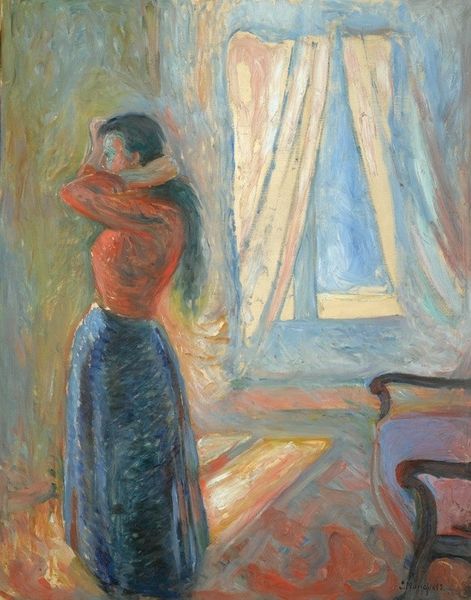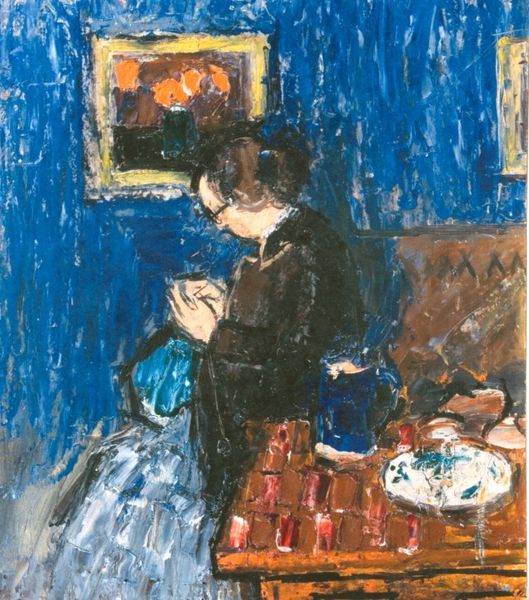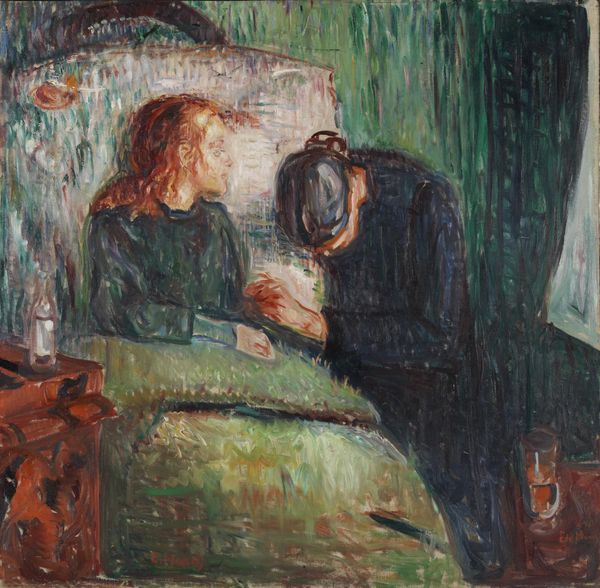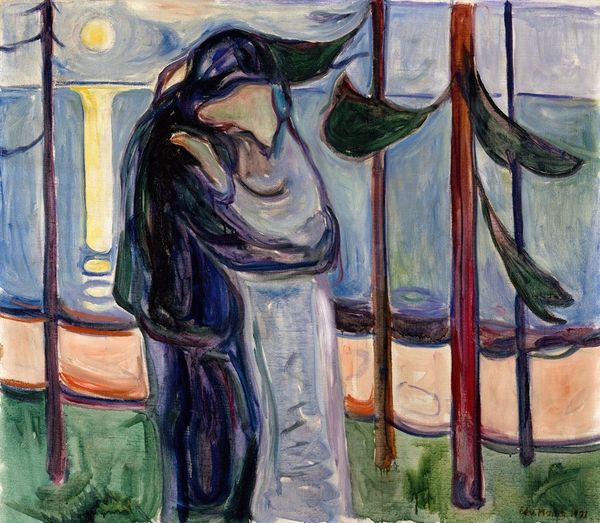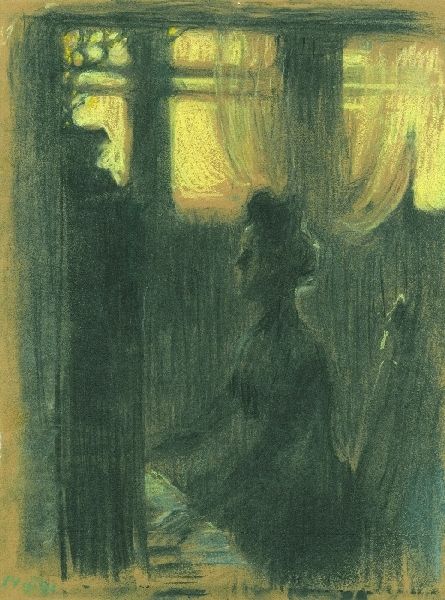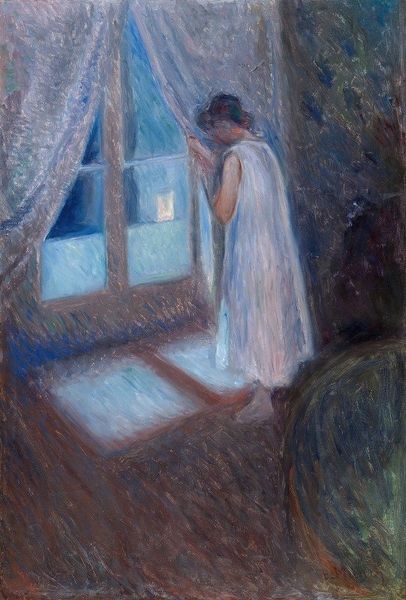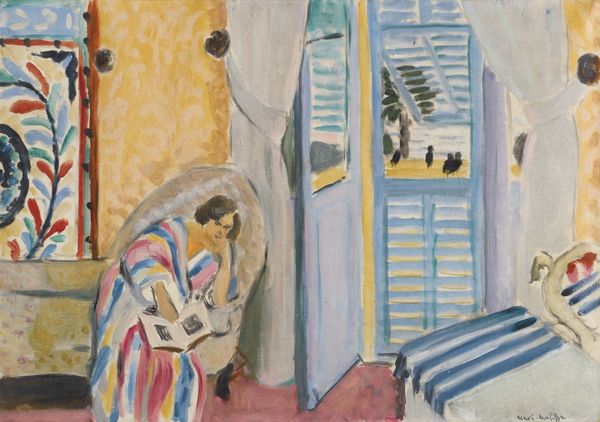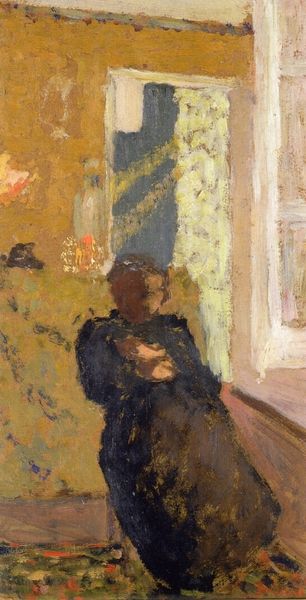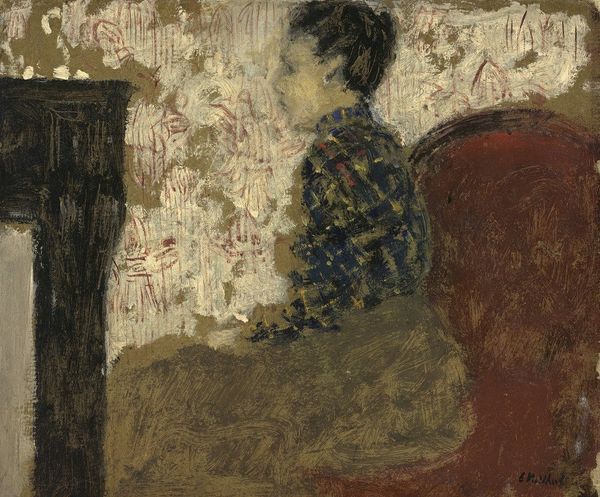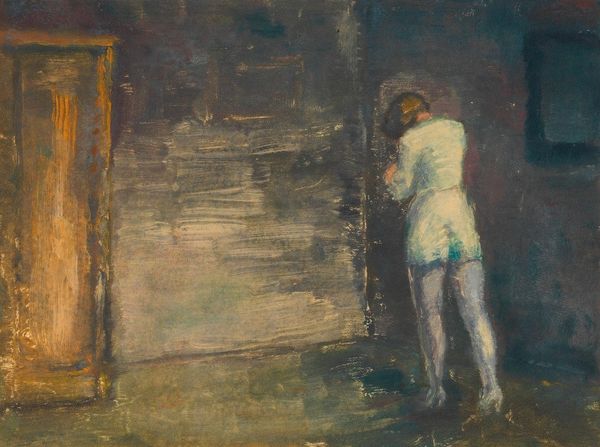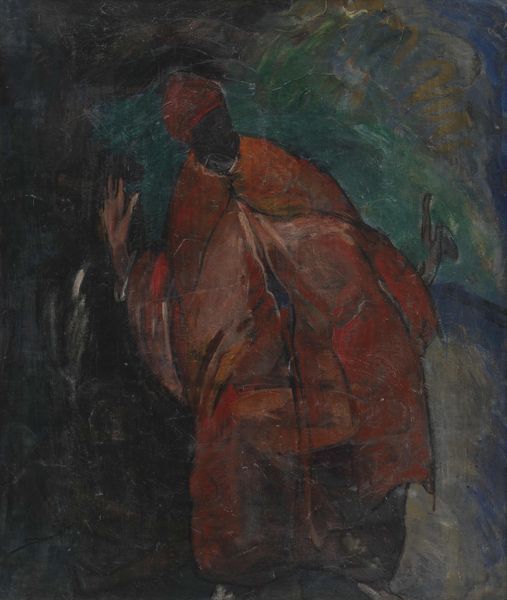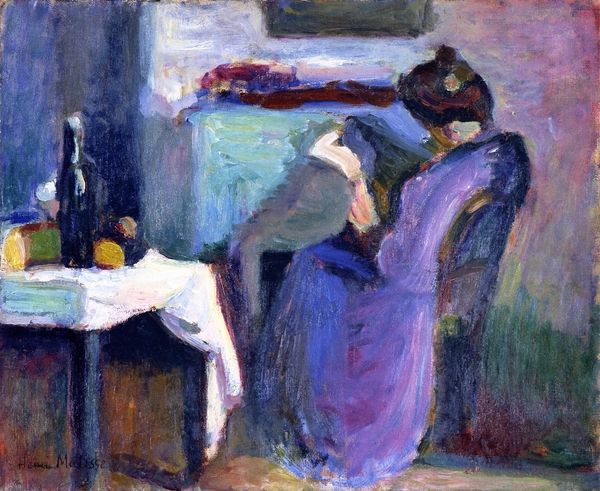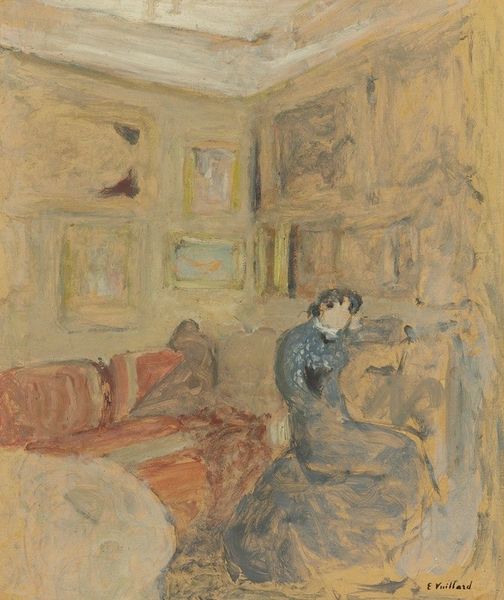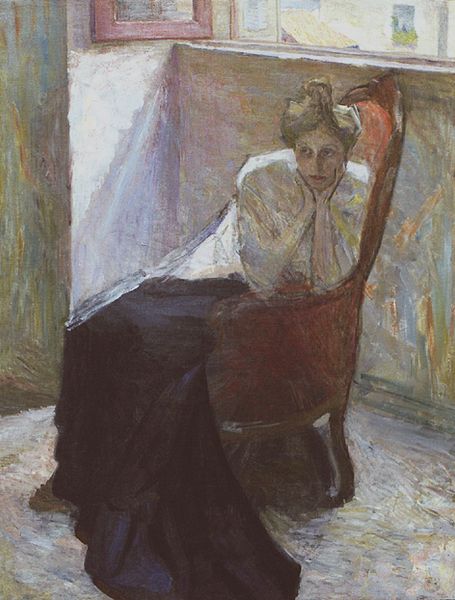
painting, oil-paint, impasto
#
portrait
#
figurative
#
painting
#
oil-paint
#
figuration
#
oil painting
#
impasto
#
intimism
#
symbolism
#
genre-painting
Copyright: Public Domain: Artvee
Curator: Let’s turn our attention to Edvard Munch’s "The Kiss," painted in 1892. What are your initial impressions? Editor: It’s incredibly intimate, almost claustrophobic. The monochromatic palette of blues and the way the figures seem to melt into one another create this intense sense of unity but also confinement. There's a world outside, but the couple seems entirely within their own private sphere. Curator: Precisely. Looking at this through the lens of turn-of-the-century anxieties, the painting engages in conversations around gender and identity. The melding of the figures blurs traditional boundaries, reflecting broader questions about the dissolving self amidst societal changes and evolving sexualities. Do you think it subverts the dominant culture? Editor: Absolutely. But considering its institutional life, think of how "The Kiss" navigates the public sphere within museums and collections. It's often romanticized, presented as an expression of idealized love, which, in some ways, neuters its potentially radical message about intimacy challenging societal norms. Isn't it an oversimplification? Curator: Undoubtedly. Understanding the socio-political context is essential to reveal the more profound narratives within. Consider, too, the way Munch uses impasto, particularly around the faces, creating texture and depth. Editor: That texture definitely enhances the emotional intensity. It is fascinating to see how the intimate portrayal has become such a popular visual. From museum walls to coffee mugs, it reveals our society's enduring fascination with themes of love and identity. And, thinking about the window scene – it gives context, perhaps suggesting they are hidden. Curator: Well said. "The Kiss" really speaks to how we project our own experiences and understandings onto artworks, reshaping and reimagining them over time. Editor: For me, reflecting on Munch’s "The Kiss," highlights the power of art not just to reflect, but to reshape the conversation and question pre-established narratives around relationships.
Comments
No comments
Be the first to comment and join the conversation on the ultimate creative platform.
